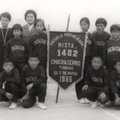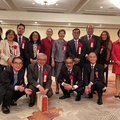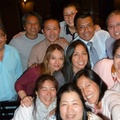If we had to find a word to refer to Daniel Tagata Asano, one that encompasses him, that constitutes a hallmark, it would be scout. He has been one since he was 11 years old and since then his life has revolved around this movement.
Before he was one of them, the scouts already attracted his attention. I saw them walking in groups, singing, going camping, having fun. A friend, César Tsuneshige, a Nisei like him, took him to the scouts and his life took a 180-degree turn. He found another world.
A world that was nothing like the hostile environment in which Nisei children grew up in the early 1950s, when the wounds of World War II were still raw.
Daniel Tagata, who was born in 1939, the same year the war began, remembers that between his house and the school where José Gálvez studied, there were about seven blocks. To go through them was to expose oneself to the grievances of boys who attacked him for being the son of Japanese. Like all Nisei children.
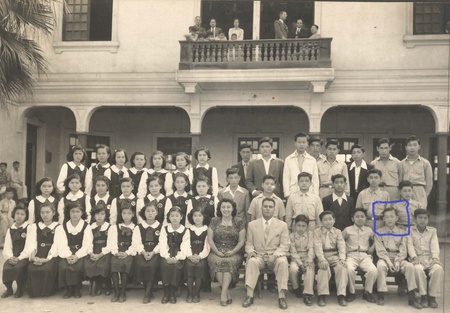
“The boys insulted us, they said atrocious things to us,” he remembers. In order not to run into them, they had to find alternative routes.
Hollywood war films, those that invariably portrayed the Japanese as villains, contributed to the climate of harassment. “In the movies, we came out traumatized because the Japanese were always the bad guys. The Peruvian kids also saw that (the movies), and they insulted us.”
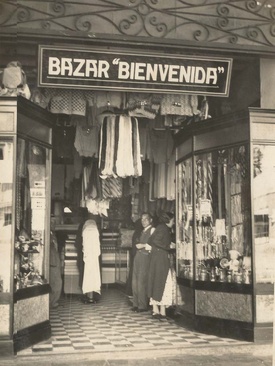
Don Daniel remembers that his father, who had a bazaar, was arrested three times during the war. All three times he had to pay the police so they wouldn't deport him.
Although the Tagata Asano family did not lose their father, they did lose their source of income: the bazaar. Some auditors from the Peruvian government appraised the assets of the premises to compensate them for the expropriation. However, when they found something they liked, they didn't record it and keep it. The rest of the things were valued at amounts below what they were truly worth.
They were hard years in which they even had to sell furniture from the house to survive.
The situation began to reverse when, thanks to a loan from friends, his mother was able to buy a store and open a winery. His father was already an elderly person (he was 60 years old when he was born) and his mother took the reins. The store supported the family's four children.
The support of the Japanese was key for the family to succeed. The adverse situations during the war, the shared misfortunes, strengthened the unity of the Japanese colony, decisive for its reconstruction during the post-war period. Don Daniel says that the sufferings of the war were an incentive to make his generation stronger.
The children grew up, became professionals and built a house for the family. “Thank goodness we children come out straight,” says Don Daniel. In his memories of the war, there is no room for resentment or bitterness. “Well, it was the time…” he says. What happened happened.
HARMONY AND EQUALITY
Daniel Tagata found harmony in the scouts. A world in which everyone was treated equally and ethnic differences were no barrier, a space that did not divide people between Peruvians and “Japanese who lost the war.”
He emerged quickly and at the age of 14 he already held a command position, the first of many that he would reach throughout his career. He was given the task of leading a group of children, approximately 7 to 10 years old, in charge of leading the activities (games, camps, etc.). Most of the children in their care were Nisei.
In those times, many Japanese families lived in Callao. It was common to bump into countrymen on the street. Don Daniel mentions the surnames of the families that lived near his house. On the same block, two, four. Only in the block where his parents had the bazaar, there were up to seven bazaars run by Japanese. Thus, there were a large number of Nisei boys, and many of them joined the scout movement, where they excelled.
The scouts also expanded their world beyond the borders of Peru. He has traveled widely to participate in courses, seminars and other events. He remembers the first time he traveled to the United States in 1962. He was dazzled. It seemed like a very organized country. In the US he discovered how a power works, what a great country can be capable of.
He visited Germany when the Berlin Wall still existed. He was in West Germany, staying in the home of a war veteran, and from a watchtower he could see the other side of the wall. Remember that West Germans missed the relatives they had in the other Germany.
Each country he visited was a unique and non-transferable experience that he has transformed into stories or anecdotes that he shares with nostalgia and youthful enthusiasm, as if by remembering them he would once again incarnate into the young man he was.
Daniel Tagata quickly rose through the ranks in the scouting movement. He became general manager and president of the Peruvian Scout Association and reached senior management positions at the Bolivarian and inter-American levels.
“They saw in me a vocation for dedication. "I gave myself fully," he says, explaining that from an early age they trusted him to assume leadership positions. His dedication has been recognized with several distinctions, including the highest decoration awarded by the World Organization of the Scout Movement: the Bronze Wolf. Only two Peruvians have received it.
“Very grateful,” he says over and over again to express his gratitude to the scouts. In addition to providing him with the harmony he was missing in an adverse environment for the Japanese and their descendants, it contributed to his formation as a human being. “It has given me values and principles that I have applied in everyday life, in non-Scout life, and that has given me a lot of success.”
In the scout movement he also found love. There he met his wife Marta, mother of his three children.
"Marta, tell him how you made me fall in love," he jokes.
“They made us a playpen,” she says, laughing.
Her story would be enough for another article, but it can be summarized like this: she, a Colombian and scout, traveled to Peru in 1968 to attend a short course. They first met. “It was practically love at first sight,” says Doña Marta. However, love did not materialize and she returned to her country. They did not see each other again until four years later, in 1972, when she set foot on Peruvian territory again for a leadership training course.
This time was different. Love, with the support of scout leaders, had begun to germinate through previous telephone contacts. When his stay in Peru of almost three months was coming to an end, it was time to decide. "I told Daniel: 'I have to go now.' Then he told me: 'But it won't be for long.' I said, 'Oh, it won't be for long... What? Should we get married here (Peru) or should we get married there (Colombia)?' He told me: 'I'm coming for you.' And it was for her. They were married twice: first, in Medellín; shortly after, in Lima.
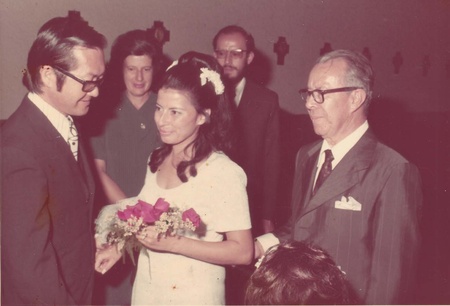
WHEN HE WAS SAVED FROM BEING A HOSTAGE
Among the various positions that Daniel Tagata has held, is that of general manager of the Peruvian-Japanese Association, with which he lived a shocking experience: the capture of the residence of the Japanese ambassador by a terrorist group on December 17, 1996. .
Don Daniel had planned to attend the event commemorating the birth of Emperor Akihito. However, at the insistence of the mayor of the Jesús María district that he participate in a ceremony that was going to be held at the Peruvian Japanese Cultural Center at the same time, he declined the invitation. The mayor's insistence saved him from being one of the hostages.
What he remembers clearly about that fateful night is the fortitude of the wife of the then Japanese ambassador who, recently released and accompanied by a group of women, was taken to the Peruvian Japanese Cultural Center, from where she made a call to Japan.
Don Daniel believes that the ambassador's spouse spoke with the then Prime Minister of Japan, Ryutaro Hashimoto. It was a long conversation. Despite the seriousness of the unusual situation, which had Peru in suspense and from which her husband and the rest of the hostages could be killed, she remained calm, giving a display of courage that he now evokes with admiration.
His professional experience covers journalism, which he came to through the scouts. When he was a teenager, he accompanied his scout chief, a journalist for the newspaper El Comercio, to his commissions. In those pursuits his vocation caught fire, which is why he decided to study journalism. Throughout his career, he has directed publications such as the newspaper Perú Shimpo and the magazine Superación.
In addition, he has been president of Nikkei institutions, such as the Nisei Association of Callao, Peru Shizuoka Kenjinkai and the Yamaguchi Kenjin Association of Peru.
In all the organizations he has been through, Daniel Tagata has sought to promote young people, pushing them to prominence. It is a way to repay all the support he received from a very young age in the scouts, a movement to which he gave his life and which rewarded him richly.
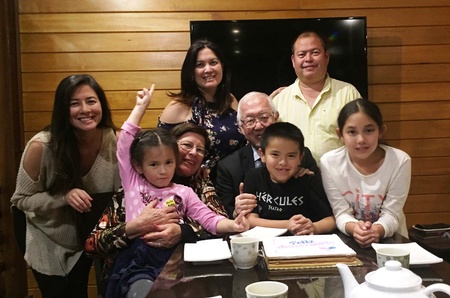
© 2018 Enrique Higa Sakuda


